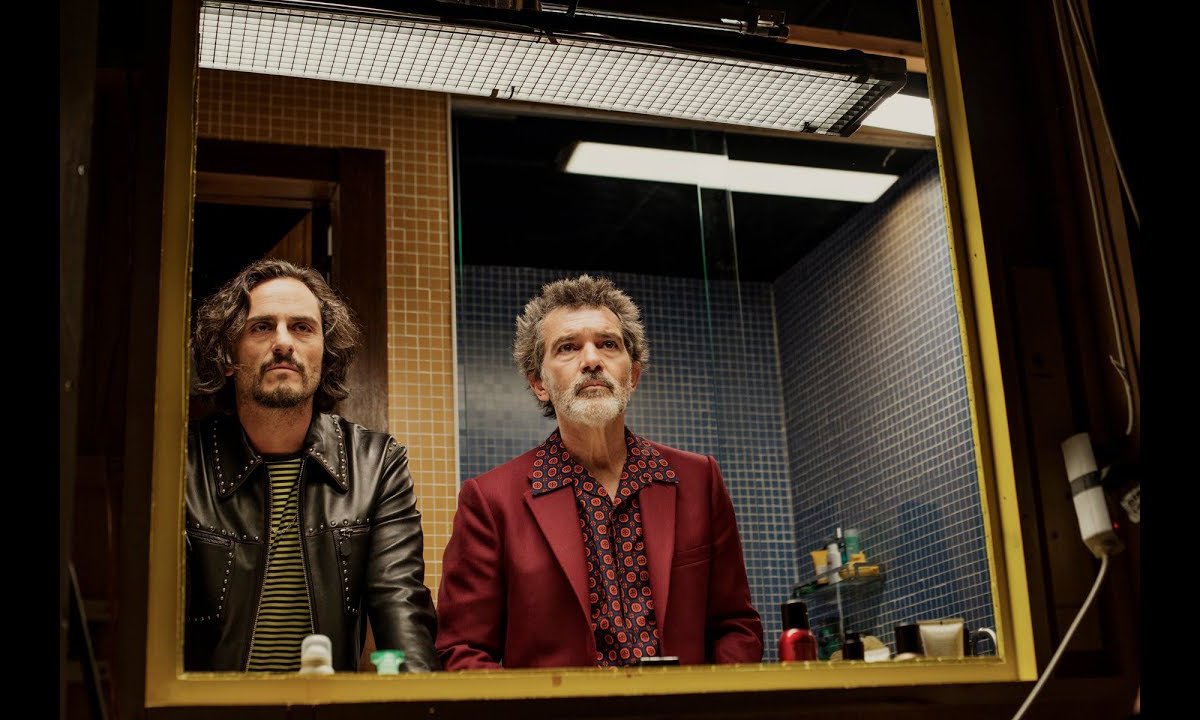Poor Pedro Almodovar. He’s clearly working his way through something bad in his life. You know how I know? Penelope Cruz is in this movie, as she has been in a lot of the director’s films. However, Pain & Glory has no leering shot of Cruz’s spectacular boobs which appear in each Almodovar film I’ve seen. Falling in between Fellini’s 8 1/2 and Marty Scorcese’s Silence, Almodovar touches both Pain and Glory as he continues to prove he’s still Spain’s best filmmaker in his 70s.
Antonio Banderas is playing the Almodovar stand-in, Salvador Mallo. Mallo used to be a brilliant director, but a host of physical and mental afflictions have crippled the director’s ability to do what makes him live: direct films. As such, Mallo’s life has hit a stasis filled with prescription medication and just meandering through his house and his past. Mallo is sucked back into the present when one of his classic films is screened, forcing him to do a Q&A with the star of the film Alberto Crespo (Asier Etxeandia), with whom Mallo has been estranged since the movie’s release.
Pain & Glory stands out from other Almodovar films because its missing some of Pedro’s storytelling playfulness. Many films of his try to merge to disparate stories together to see if they work. Not Pain & Glory. We are stuck in Mallo’s head for all of the movie’s running time. We do get flashbacks to Mallo’s childhood and upbringing by his mother Jacinta (Penelope Cruz), but those usually happen as Mallo is tripping on heroin. We are along for the ride on Salvador’s journey, as he grasps for reasons to fight for living on. Almodovar subtly builds little and little victories for Mallo: the heroin actually helps him strip away excess pain so he can rediscover parts of himself, and reconnect with other people like Alberto. Now checked back in, Salvador then dials back the drug use to feel again, this time now remembering what pleasure and happiness can feel like when he finds a connection that means something to him. I for one look forward to the heroin industry delivering Almodovar a check for the positive message that drug gets in this film.
This story is in fact SO personal to Pedro Almodovar that I’m pretty sure the movie will treat Antonio Banderas’s character portrayal as autobiography. The upbringing flashbacks are pretty specifically Spanish and fascinating: it seems young Pedro found a very circuitous route to learn about geography or anatomy. We also see some of his early brilliance, artistic gifts, affinity for men, and complicated relationship with his parents. Antonio Banderas carries us through modern day Mallo’s life. Banderas has made so many films with Pedro Almodovar the talent actor has clearly picked up his hair, mannerisms, and groans. Banderas sells us on the shell, so that when he comes back to life, when say an old fling (Leonardo Sbaraglia) reconnects with Malo, Banderas quietly and subtly shows us Salvador’s growth and reenergized zest for living, which we can only hope Almodovar feels right now.
Pedro Almodovar. I want you to know that I sincerely hope you’re more like Salvador Mallo at the end of Pain & Glory then the Mallo at the beginning of the film. We all love you dude! The world would be much less beautifully colorful without you. You almost got me to endorse heroin use, a testament to the power of your storytelling in Pain & Glory.

